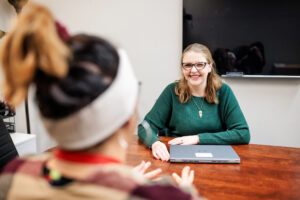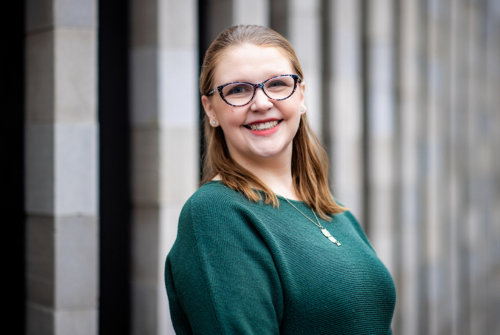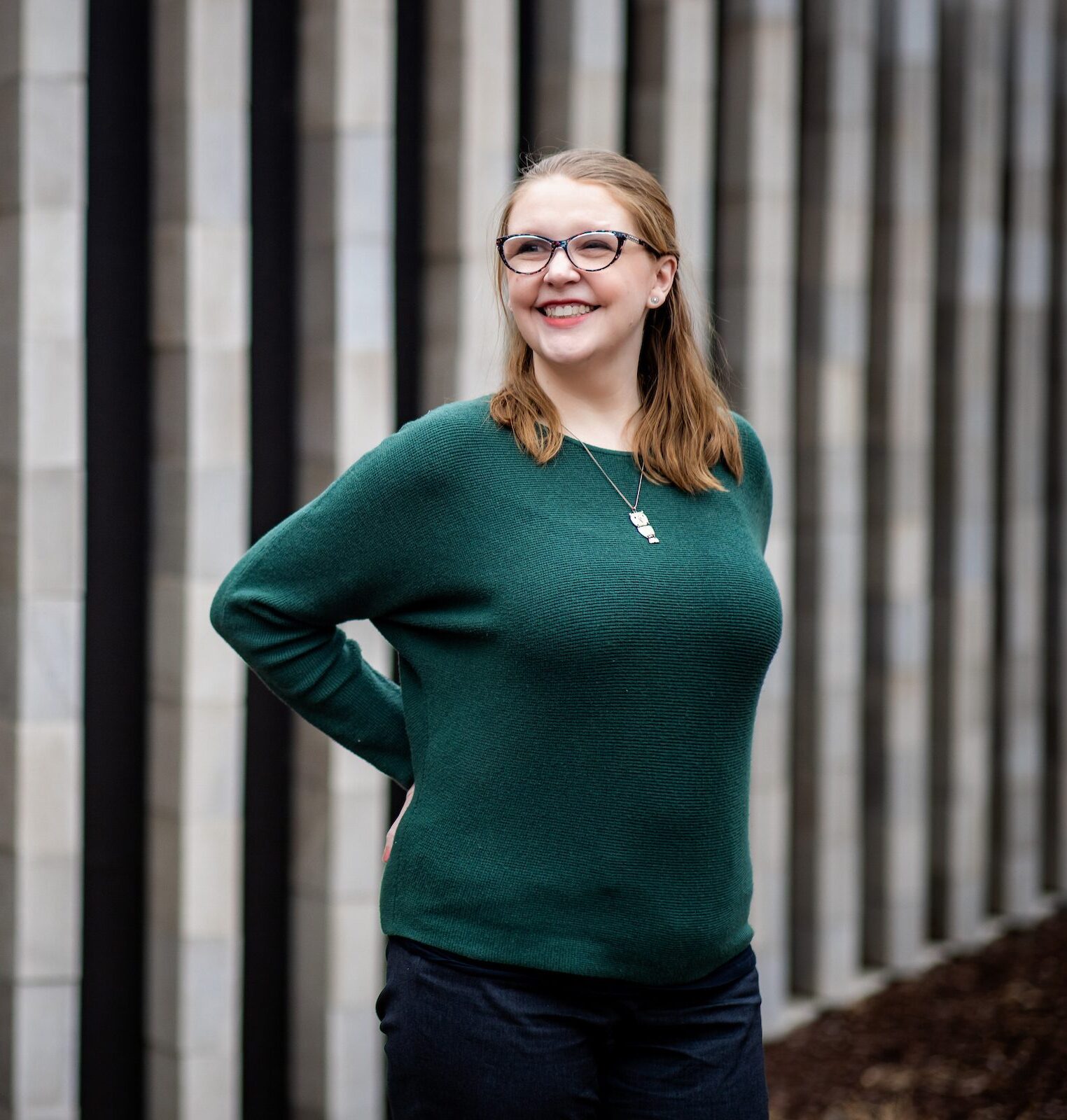There’s a shortage of mental-health providers in Colorado. According to the most recent Colorado Health Access Survey, almost a quarter of the state’s residents reported having poor mental health, and one in every six Coloradans was unable to get needed care.

Caitlin Plamp, assistant director of Admissions, Strategic Enrollment and Data Management at Metropolitan State University of Denver, hopes the University’s School of Social Work can meet the need. But first, she’s on a mission to ensure that the Social Work graduate program is accessible to all.
Plamp oversees the admissions processes for the University’s undergraduate and graduate Social Work programs. In her role, she speaks with prospective students deciding between a master’s degree in Social Work or Counseling. “One of the great things about social work is that it’s very flexible,” said Plamp. “You can do micro-, meso- or macro-level work. Social work can fill many of the mental-health gaps across the state.”
To help MSU Denver become the pipeline of diverse talent that Plamp envisions, she is working to make the Master of Social Work program more inclusive.
“The big change I’d like to see is that eventually, the only thing to prevent someone from enrolling in our program is if they’re not ready,” Plamp said. “I hope when I’m done, finances, ability to volunteer, native language, immigrant status and household income will have no bearing on college admittance.”

“The big change I’d like to see is that eventually, the only thing to prevent someone from enrolling in our program is if they’re not ready,” Plamp said. “I hope when I’m done, finances, ability to volunteer, native language, immigrant status and household income will have no bearing on college admittance.”
Campus culture nurtures action
Finding a career in higher education was a happy accident for Plamp. “While getting my undergrad degree, I was a student worker in the Department of Social Work,” she said. “That’s where I learned that higher education could be a profession beyond being a professor. Our director of Student Services at the time, Amy Middleton, helped me see these possibilities and encouraged me to stay on after graduation.”
Leaning in, Plamp earned her master’s degree in Higher Education Administration from Southern New Hampshire University.
Working in the Department of Social Work allowed Plamp, a lifelong learner, to continue her journey as a Changemaker. “Our department is a brave space where I can ask tough questions,” she said. “Through those conversations, I realized the inequities that are at play in our educational systems.”
Once she learned about them, she wanted to do something to change them.
“The system of higher education has biased roots,” said Plamp. “When it was created in the United States, higher ed was only for wealthy white men. From the beginning, institutional barriers kept many people from accessing further education.”
Over time, things have improved, Plamp pointed out. “Still, education continues to have segregation,” she said, “whether that’s by race or by gender, and the Ivy League prides itself on its low acceptance rate.”
Radically reimagining processes to remove bias
Since 2016, Plamp has worked closely with a group of faculty members to radically rethink the admission process, including:
- Revamping the written application requirements, shifting from an admission essay to a more approachable series of short answers that will still challenge applicants to think critically.
- Providing applicants with resources to help them with their written materials, including support from the Writing Center and an American Psychology Association seventh edition formatting template.
- Removing the professional-history form from the application, recognizing that not all applicants will have had the same access to opportunities to volunteer or work in closely relevant fields.
- Offering application-fee waivers.
- No longer asking for recommendation narratives and instead using a quantitative form.
- Removing standardized-test requirements.
- Developing innovative recruiting events to engage historically marginalized groups.
The Social Work Department continues to infuse anti-racist, anti-oppressive practices into its curriculum and admission process.
Plamp says it’s working: The number of BIPOC students enrolled in the program has increased by more than 6% over the past six years. The program now sees a 50/50 ratio of students over and under age 30, and more men, a historically underrepresented group in social work, are now enrolled.
As the department grows increasingly diverse, all of Colorado will benefit, Plamp says. “Most of our graduates stay in Colorado,” she said. “Studies have consistently shown that having a diverse mental-health workforce benefits the community. Having someone whose story is similar to yours and who shares your identities will make your experience much richer and more productive.
“It will help people feel safer in accessing mental health.”
Dreaming on a national scale
For a Changemaker such as Plamp, MSU Denver is the perfect incubator.
“I love higher ed, and there’s no place I’d rather be than at MSU Denver,” she said. “The student population is unique. Everyone has a shared dedication to breaking down barriers, improving student access to higher education and improving student outcomes.”
Though she has already enacted plenty of change in her department, she still has big dreams. “Right now, I’m working on the Social Work program, but how can we introduce these same ideas across all the graduate programs at MSU Denver? What if all graduate education in the U.S. operated this way?” Plamp wondered.

Someday, she hopes every university has a high acceptance rate. “If someone wants to learn, advance their knowledge and make the world a better place, and they can succeed, why not let them?”

